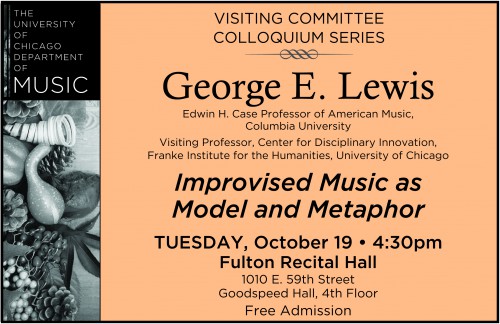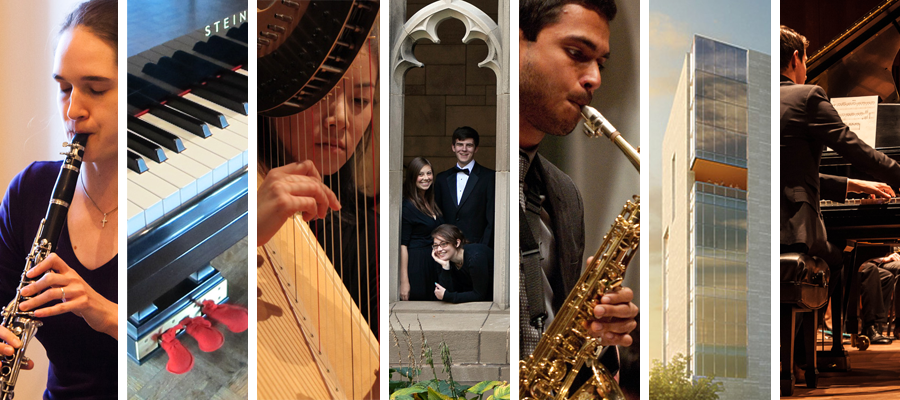
“In recent years, it has become evident that, in contrast to previous eras, the work of many of the best-known public intellectuals of our time seems distanced from musical considerations, and from new and experimental music in particular. As a result, the practice of culturally and philosophically theorizing contemporary sonic texts tends to become marginalized and devalued in the public sphere—not because music scholars are not producing these works, but because it is somehow assumed (or at least this is this impression gained from “mainstream elite” periodicals) that music has little to teach us about the critical issues of our time.
Down in the scholarly trenches, however, an insurgency of sorts has been developing, one that reasserts the centrality of music study to contemporary intellectual discourse–not by simply deploying the tools and methods of other fields (the standard version of “interdisciplinarity”) but by using music itself as a critical tool to analyze contemporary critical, cultural, historical, and social issues.
This work is taking place not only in music, but in nominally non-arts areas of inquiry, including organizational science, computer science, economics, theology, and urban studies, all of which have drawn heavily from improvisative models of musical organization to illuminate crucial debates in their fields and beyond. Are scholars from diverse fields who are engaged in “writing through music” (as Jann Pasler proposes) creating new tools for a critical improvisation studies that can help to reposition the study of music toward new understandings of the human condition?”
Lewis’ widely acclaimed book, A Power Stronger Than Itself: The AACM and American Experimental Music (University of Chicago Press, 2008) received the 2009 American Book Award, the American Musicological Society’s Music in American Culture Award, an Award for Excellence in Recorded Sound Research from the Association for Recorded Sound Collections, and an award from the Jazz Journalists Association for the Best Book on Jazz. A member of the Association for the Advancement of Creative Musicians (AACM) since 1971, Lewis’ work as composer, improviser, performer and interpreter explores electronic and computer music, computer-based multimedia installations, text-sound works, and notated and improvisative forms, and is documented on more than 130 recordings. The recipient of a MacArthur Fellowship in 2002, an Alpert Award in the Arts in 1999, and fellowships from the National Endowment for the Arts, Lewis studied composition with Muhal Richard Abrams at the AACM School of Music, and trombone with Dean Hey. His oral history is archived in Yale University’s collection of “Major Figures in American Music,” and his published articles on music, experimental video, visual art, and cultural studies have appeared in numerous scholarly journals and edited volumes.
The work of many public intellectuals of our time seems distanced from musical considerations, in particular from new and experimental music. The practice of culturally and philosophically theorizing contemporary sonic texts has been marginalized in “mainstream elite” periodicals, implying that music has little to teach us about the critical issues of our time. An insurgency of sorts is developing in the scholarly trenches, reasserting the centrality of music study to intellectual discourse by using music as a critical tool to analyze contemporary issues. Are scholars from diverse fields, engaged in “writing through music” (as Jann Pasler proposes), creating new tools for a critical improvisation studies that can help to reposition the study of music toward new understandings of the human condition?
Lewis’ work as composer, improviser, performer and interpreter explores electronic and computer music, computer-based multimedia installations, text-sound works, notated and improvisative forms, and is documented on more than 130 recordings. His widely acclaimed book, A Power Stronger Than Itself: The AACM and American Experimental Music (University of Chicago Press, 2008) won the 2009 American Book Award, the AMS Music in American Culture Award, an Award for Excellence in Recorded Sound Research from the Association for Recorded Sound Collections, and Best Book on Jazz from the Jazz Journalists Association.
Free and open to the public
Reception to follow
1010 East 59th Street
Goodspeed Hall, 4th Floor
773-702.8069 event hotline ~ music.uchicago.edu
Persons with a disability who may need assistance should call 773.702.8484 in advance of the event.
